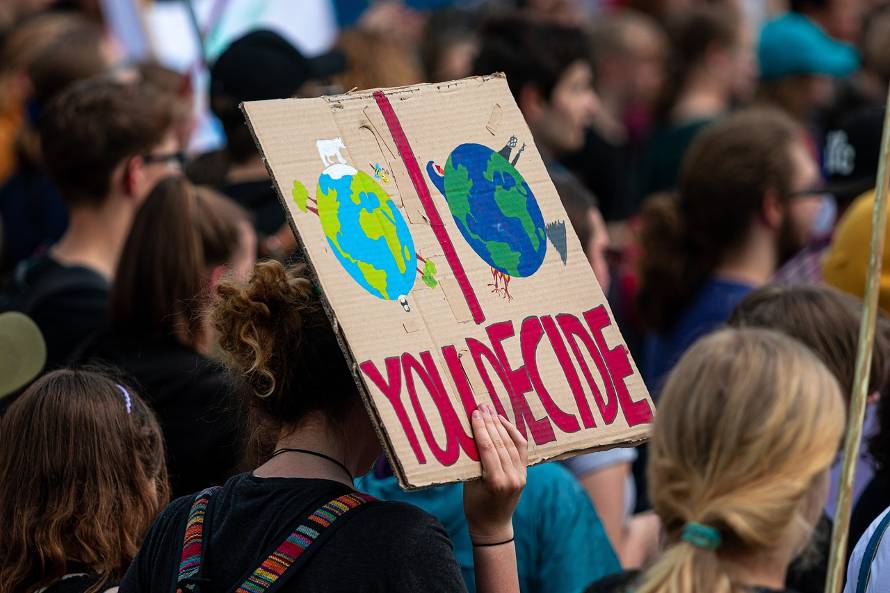Rising global temperatures beyond the Paris Agreement’s 1.5°C target, even temporarily, could result in long-lasting climate damages, according to groundbreaking research published in Nature. The study emphasizes the critical importance of immediate and substantial emissions reductions to minimize climate risks.
Summary: A new study reveals that even if global temperatures are reversed after exceeding 1.5°C, some climate impacts like sea-level rise may be irreversible. The research underscores the urgency of rapid emissions reductions to limit peak warming and associated risks.
Estimated reading time: 5 minutes
In a comprehensive analysis of climate “overshoot” scenarios, researchers have found that temporarily surpassing the Paris Agreement’s 1.5°C warming limit before cooling down may not prevent long-term climate damages. The study, published today in Nature, is the result of a three-and-a-half-year project supported by the European innovation fund HORIZON2020.
The Perils of Temperature Overshoot
The research team, led by Carl-Friedrich Schleussner, examined scenarios where global temperatures temporarily exceed the 1.5°C target before being brought back down through net-negative CO2 emissions. Their findings challenge the notion that such an overshoot would yield similar climate outcomes to scenarios where warming is more strictly limited.
“This paper does away with any notion that overshoot would deliver a similar climate outcome to a future in which we had done more, earlier, to ensure to limit peak warming to 1.5°C,” explains Schleussner, who serves as the Integrated Climate Impacts Research Group Leader in the IIASA Energy, Climate, and Environment Program and as a scientific advisor at Climate Analytics.
The Importance of Peak Warming and Duration
The study highlights that both the magnitude and duration of temperature overshoot are crucial factors in determining long-term climate impacts. While achieving long-term temperature decline could mitigate some risks, the researchers found that certain consequences, such as sea-level rise, may persist for centuries.
Joeri Rogelj, a study co-author and professor at Imperial College London, emphasizes the urgency of reaching net-zero emissions: “Until we get to net zero, warming will continue. The earlier we can get to net zero, the lower peak warming will be, and the smaller the risks of irreversible impacts.”
The Need for Ambitious Carbon Dioxide Removal
One of the study’s key findings is the potential need for a substantial “preventive capacity” of carbon dioxide removal (CDR) to hedge against higher warming outcomes. The researchers suggest that several hundred gigatons of net removals might be required to address uncertainties in the climate system’s response.
Gaurav Ganti, a research assistant at IIASA and analyst at Climate Analytics, stresses the importance of prioritizing emissions reductions: “There’s no way to rule out the need for large amounts of net negative emissions capabilities, so we really need to minimize our residual emissions. We cannot squander carbon dioxide removal on offsetting emissions we have the ability to avoid.”
Implications for Climate Policy and Action
The study’s findings have significant implications for global climate policy and action. The researchers argue that their work reinforces the need for immediate and ambitious emissions reductions, rather than relying on future negative emissions technologies.
Schleussner concludes, “Our work reinforces the urgency of governments acting to reduce our emissions now, and not later down the line. The race to net zero needs to be seen for what it is – a sprint.”
The Path Forward
As countries prepare to submit new Nationally Determined Contributions (NDCs) ahead of next year’s climate summit in Brazil, the study’s authors emphasize the critical importance of ambitious near-term emissions reduction targets. By limiting peak warming as much as possible, nations can reduce the risks of irreversible climate impacts and minimize the need for large-scale carbon dioxide removal in the future.
The research underscores that while pathways to limiting warming to 1.5°C or lower in the long run still exist, they require immediate and substantial action. The message is clear: delaying emissions reductions in favor of future negative emissions strategies is a risky gamble that could lead to irreversible climate consequences.
Quiz: Test Your Understanding
- What is the main finding of the study regarding climate “overshoot” scenarios? a) Overshooting 1.5°C has no long-term consequences b) Temporarily exceeding 1.5°C may lead to irreversible climate impacts c) Overshooting is an effective strategy to combat climate change d) The duration of overshoot doesn’t matter, only the peak temperature
- According to the study, what is needed to hedge against higher warming outcomes? a) Increased fossil fuel production b) A “preventive capacity” of carbon dioxide removal c) Relaxed emissions targets d) Focus solely on adaptation measures
- What does the study conclude about the urgency of emissions reductions? a) Emissions can be reduced gradually over the next few decades b) Immediate and substantial emissions reductions are critical c) Future technologies will easily solve the emissions problem d) Emissions reductions are less important than carbon removal
Answers:
- b) Temporarily exceeding 1.5°C may lead to irreversible climate impacts
- b) A “preventive capacity” of carbon dioxide removal
- b) Immediate and substantial emissions reductions are critical
Further Reading
Glossary of Terms
- Overshoot: A scenario where global temperatures temporarily exceed a target (e.g., 1.5°C) before being brought back down.
- Net-negative emissions: A state where more greenhouse gases are removed from the atmosphere than are emitted.
- Carbon dioxide removal (CDR): Technologies or practices that remove CO2 from the atmosphere.
- Nationally Determined Contributions (NDCs): Climate action plans submitted by countries under the Paris Agreement.
- Paris Agreement: An international treaty on climate change adopted in 2015, aiming to limit global warming to well below 2°C, preferably 1.5°C.
Enjoy this story? Get our newsletter! https://scienceblog.substack.com/


